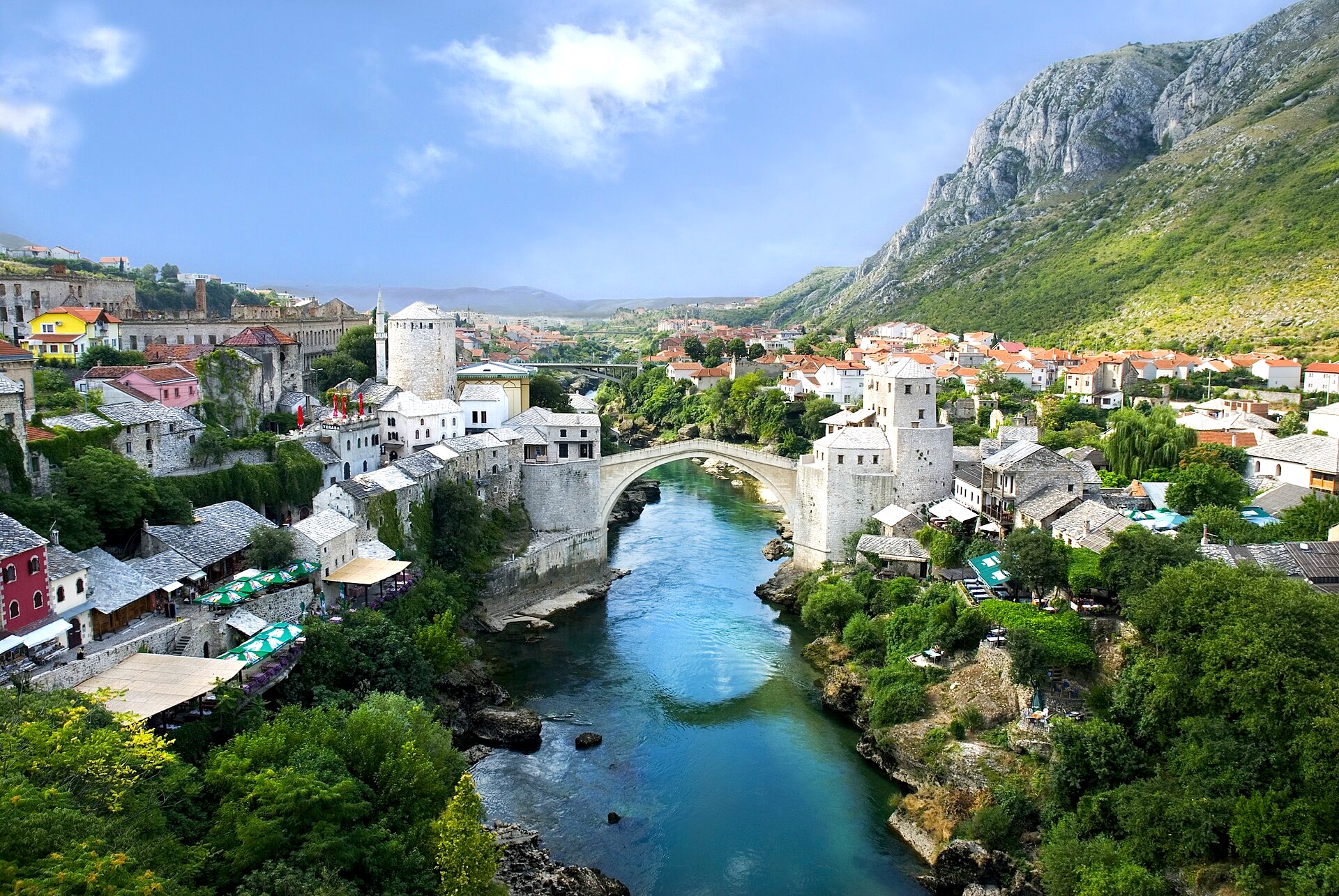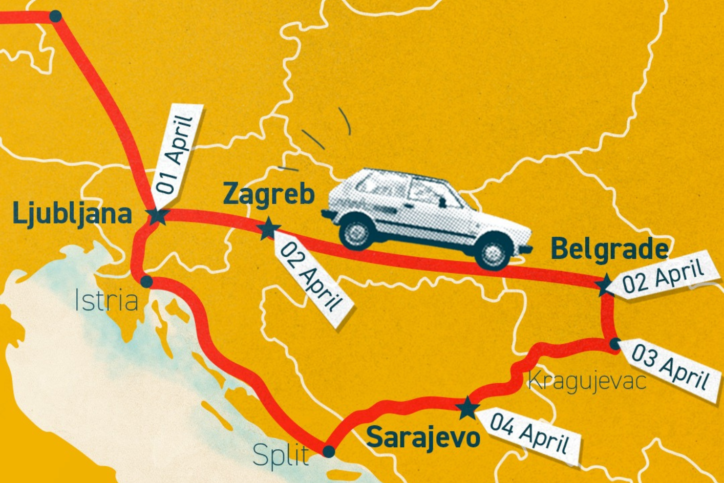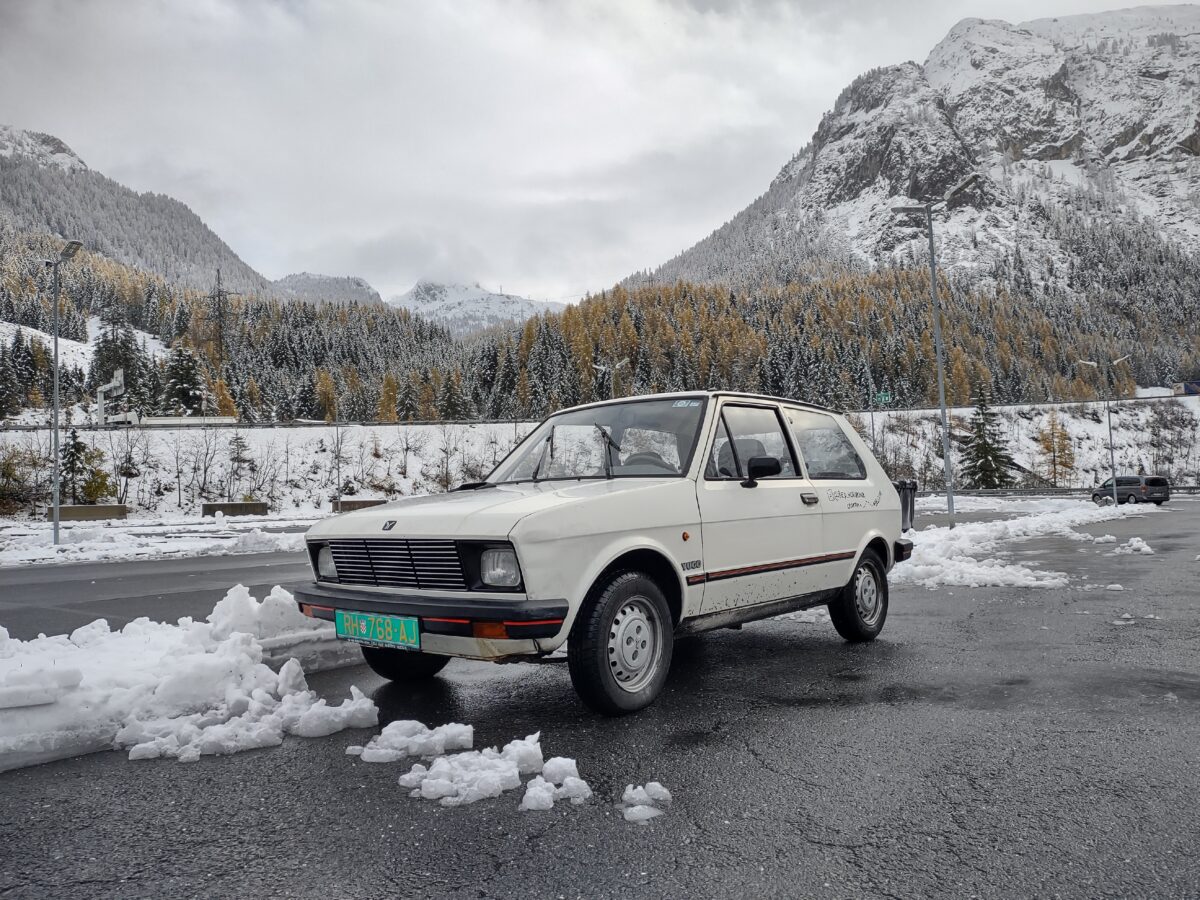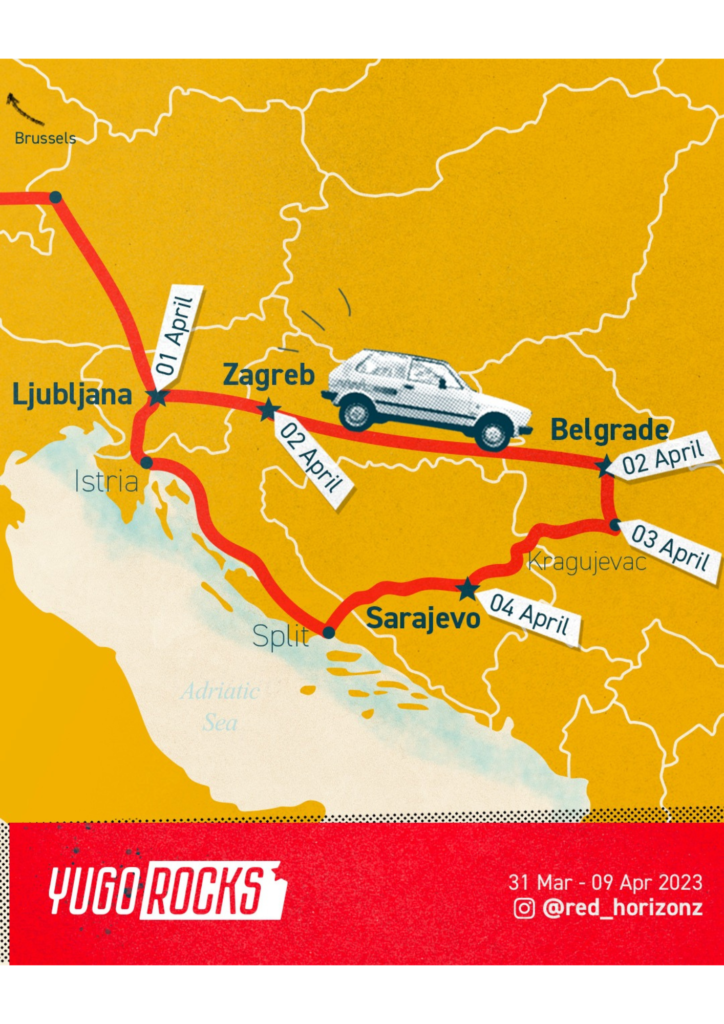

The story of Yugoslavia is a fascinating one, full of unique cultural and societal complexities. This now “extinguished” country was once an unparalleled example of coexistence, bringing together different cultures, religions, and languages to create a distinctive and rich blend of art, music, and movies.
But although many academics and Yugoslavia enthusiasts are familiar with this exceptional culture, the story of this now-extinct country is often overlooked by the masses. However, there are two individuals who are determined to learn everything they can about Former Yugoslavia’s culture: Jose and Laura. In order to explore and really submerge in the atmosphere of this extinguished countries, they organised a trip around former Yugoslavia’s countries in their beloved Yugo, probably the most famous car produced in Yugoslavia.
Laura and Jose’s story began in Brussels. While Laura is Romanian, working as a competition lawyer, Jose is a graphic designer from Portugal. Although they lived as neighbours for some time, it wasn’t until later that they took notice of each other. Their journey together, which began with a deep love for each other, has since blossomed into an insatiable curiosity for the culture of Yugoslavia. Their captivating story could easily be the plot of a romantic movie, filled with adventure and discovery.
As soon as I met them, I realised that their story was too compelling to keep to myself. I knew right away that I had to interview them and share their unique journey with all of you.
Laura, you mentioned that you heard stories about Yugoslavia when you were younger. Could you share with us one of those stories that stuck with you?
“Absolutely! My mother toured through Montenegro and Croatia the year before I was born, and I grew up hearing all about the fabulous coastlines, the mountains reaching out to the sea, palm trees dotting the landscape, and a serene, picturesque setting…and hearing the stories about this country who was just on the other side of the border, and seemed so different.. I knew that these countries were once part of the Republic of Venice, which, for us, was this fancy faraway land…and I kinda grew up wanting to go and see this country!
However, the “funny thing” is that, because of the no fly zone and the economic sanctions, the most difficult place to reach from my country was our neighbour Yugoslavia!”
“After the war, I was fortunate enough to attend summer schools in former Yugoslavia’s countries, which allowed me to finally experience the country firsthand. It was there that I made many friends who shared with me their stories of the country they had once called home. …that’s how I got to know Former Yugoslavia: through the people. I kept returning to this former country multiple times, and I vividly recall telling Jose shortly after we met, “You absolutely have to see Montenegro in May… it’s like heaven on earth.”
“The idea of not having borders, and just being able to travel in a country which was an Eastern Bloc Country…well, for us this was so modern, so fascinating! I think that even back then, even if we didn’t put it into words, we did have the feeling that Yugoslavia was something special; although we tried to boast to everyone that our country was where east meets west, I think that Yugoslavia was more of that than we were.”
And you, Jose, when did you become interested in the history of former Yugoslavia?
“So, we went on a little road trip to Istria during the low season and since every other place was closed, we stumbled upon this restaurant, perched on a promontory overlooking the sea, built right into the rock. After devouring lunch, we saw an old picture at the exit of the restaurant, which looked like it was taken in the 70s, and Tito was in it. It was at that moment I realised the significance of Yugoslavia’s history, and decided to delve more into it”
Do you remember the name of the restaurant?
Yes! It is called Hotel Restaurant Flanona, and its construction was actually Tito’s idea. When travelling to Brijuni, Tito would fly to Rijeka and then drive to Pula to reach the island. During his journey, he would make a stop here because of the beautiful view. One day he said, “It would be nice to have a hotel here,” and that’s what happened – the hotel was built.
Why don’t you tell me a little bit about the trip across former Yugoslavia’s countries that you’re about to embark on?

It all started with our love for the Yugo. We were determined to find and buy one of these amazing cars, and that was the driving force behind our trip to Istria. Our plan was to have a holiday and, if we found the car, drive it all the way back to Belgium. And we did find one! We bought it from Mario, an 84-year-old man who couldn’t believe we came all the way from Belgium just to buy a Yugo. But we assured him that we would make the journey back home, fix the car and, one day, come back to visit him with the Yugo!
This was the main reason behind our trip, but there were other factors that pushed us to go as well. For instance, when I couldn’t find the parts I needed to repair the Yugo, a guy named Nikola from Belgrade helped me out. I jokingly told him that I would meet him for a beer one day, and he said that if I managed to drive the Yugo all the way to Belgrade, the beers would be on him. Looks like Nikola will have to keep his promise soon!

That will be fun for sure! What, and who else will you see on this trip?
Well, we will have to stop at the Ex-Yu Rock Center in Sarajevo! After spending the winter in this garage, working on the Yugo and listening to Yugorock, we can’t miss it!
Well, now I want to know your favourite Yugo-Rock song!
I came across this incredible song called “Pogledaj dom svoj andjele” by Riblja Čorba. It was written and released in 1985, but what’s really striking is how the lyrics seem to capture the conflict that took place in the 90s. I find this particularly powerful because of the historical context it represents.
What would be your main goal for this trip, aside from visiting people connected to your Yugo?
We believe that Yugoslavia’s charm is not about nostalgia, but about the shared values of its people. You can see it in the Yugo car, a symbol of a united Yugoslavia, with parts from all over – Slovenia, Croatia, and Kosovo for the seats! The Yugo brings people together just like the Yugo rock music did back in the day, born out of a time of transformation and creativity.
Moreover, we’ll be able to raise awareness about projects that we believe in, like the Remembering Yugoslavia podcast, that we often listen to, the above mentioned believe this Ex-Yu Rock Center and the Yugo Logo project, that collects logos from former Yugoslavia, which is particularly relevant for me as a graphic designer.
Alright, here’s a challenging one for you. Not too many people are familiar with the history of former Yugoslavia. What do you think is their perspective of this extinguished country, or even of the whole Balkan area?
[Laura] In my view, the Balkan peninsula has been unjustly labelled as the “powder keg of Europe” since World War One, and this label has unfortunately stuck in the Western world without much revision. The rich cultural heritage of the region is often ignored or underestimated, and this is simply not fair. We cannot label the Balkans and forget about its diverse and complex history. As Easterners, we share a common heritage, one that is marked by diverse cultural influences and a long history of multi-ethnic coexistence. This, in my opinion, is the most fitting lens through which to view the region.
[Jose] I believe that the image that persists after the war is not only inaccurate but also unfair. While some countries have progressed, others like Montenegro and Serbia have not. This is evident from the high rates of migration and low income levels. It’s unjust that these Balkan countries struggle to develop and compete in the global market despite having talented and qualified individuals. They’re constantly subjected to a sense of inferiority from the EU, often begging for access to the Union and facing visa restrictions. This issue is not unique to this region but is a global problem. It’s unfair to create borders that restrict people’s movement, especially in their own backyard.

Would you like to follow Laura and Jose in their trip around former Yugoslavia? You can follow it here! Yugo Rocks